This post is from Michelle Quashie, and originally appeared on her blog site Strong Since Birth. Our thanks to Michelle for agreeing for it to be reposted here.
The day had finally arrived! After contributing to #MatExp and interacting with many conversations surrounding ‘WhoseShoes’ throughout the year, I was finally going to experience the magic in real life.
Laura, the chair of our MSLC has written a fantastic post that captures the excitement of the day perfectly, you can read it here: When WhoseShoes Came To The PRUH
I was not disappointed, the day was everything I had dreamed of, but for me it was so much more.
I was asked to open the event by sharing my Maternity Experience. I have spoke at several maternity training events in the past but my audience has always been Midwives. I was aware that this was a multi discipline training event and it was to be the first time I would share my story in such detail with Obstetricians and everyone else involved in Maternity. The thought made me feel anxious but I knew how important this opportunity was.
I had planned to stay in control and not let the emotions attached to my experience be displayed in the form of tears. It was so important to me to remain composed and in control.
My heart pounded through the showing of the MatExp film, this film moves me every time. It is so powerful and very thought provoking. Sadly I can resonate with many of the situations displayed in the film. I knew I was about to be discussing some of those memories any minute with all those surrounding me.
My name was called and I made my way to the front with my heart pounding. I decided to be honest and share how I was feeling with the room.
‘Please bare with me, I am feeling very nervous. I’m sure once I start talking I will warm up and I will be fine!’
Automatically I felt more relaxed and felt more able to share my story without the anxiety overruling my thoughts.
It’s amazing how every time I share my experience it comes out slightly different, or I find myself saying things that I hadn’t thought of before? I had missed a couple of important bits out but neither the less I was very happy with the way I had presented and gauging by the feeling of emotion in the room I had touched the hearts of nearly everyone around me. For the first time I was able to keep my tears to myself even though I had noted that tears were shed by many in response. The room fell silent but the atmosphere spoke volumes.
I wasn’t aware of the tweets that were being circulated on social media but looking at them them later along with the emails I had received It confirmed that my talk was a positive part of the day.
“Also a massive well done to Michelle for her heartfelt and emotional story, I could see it touched many people as there were certainly a few tears in the room. That took huge courage to stand there in front of so many people and share such a personal experience and to tell it so well. Huge WELL DONE Michelle.”
We began to play the the game and interesting discussions were had in response to the thought provoking questions that are key to the WhoseShoes success.
Some of the discussions that stick in my mind were:
- A woman wanted a home birth but her husband wasn’t convinced. We had discussed that there wasn’t enough support or information given during antenatal care to ensure that the couple felt safe,supported and empowered to fulfil the woman’s birth choice.
- Consultant Obstetricians are normally addressed by other members of their team using their title i.e., Sir, Mr, Mrs or Miss as a mark of respect. I may be wrong but it feels hierarchical, unlike the power slogan and barrier breaker behind WhoseShoes and #MatExp ‘No Hierarchy, just ordinary people’.
- It was also discussed that consultants were on site until 9 pm, after that they are on call for emergency situations only. Now I understand why during my appointment to discuss my VBAC, the registrar said ‘ I mean, we don’t know when you will go into labour or who will be on duty should you rupture’. I now understand that my birth choices were influenced by staffing levels at the hospital.
- Other key themes were Empathy, Language, supporting and facilitating informed decision making and just how important it was for everyone to be cared for individually based on their individual situation and needs.
- Midwives are able to have time to build a relationship with women whereas doctors are often called for the emergency situation and do their best to resolve the medical issue as it arises. This can sometimes make it hard for them to be able to connect with the woman that they are caring for and are not always able to fully appreciate the long lasting effects the experience can have on a woman.
The day was coming to an end and Anna gave us fabulous evaluation of our morning using the comments that came from the discussion at each table. It was fabulous to visualise the discussion using the graphic that Anna had been working on through out the morning.
We each made an individual pledges. Here is my pledge:
“To provide a platform for women to share their Maternity experience. I would like to ensure that women’s voices are heard as part of training and development.”
I am currently planning a conference called ‘Women’s Voices’. More details will be available soon.
As the morning came to an end and people were leaving someone tapped me on my shoulder. I turned round and my tummy flipped. The face before me took me straight to a place of feeling vulnerable, feeling panicky.
‘Michelle it was me wasn’t it?’
Stood before me was the registrar that I had my consultation for my vba2c with. Unbeknown to my self and the organisers we had shared the morning. I had shared an experience that changed my life but had also been a time that left me feeling scared, vulnerable, isolated and questioning my mental health. The person that was responsible for those feelings was standing here in front of me, for a moment the feelings came flooding back, I battled to keep them contained.
She apologised for the way she had cared for me. She admitted that she had been wrong and has since ensured that she was fully aware of her professional guidance. She was now fully supportive of women’s choice regarding their birth and ensured me that since having to write a statement in response to my complaint, she is fully aware of the impact of the care she provides a woman.
She actually thanked me for highlighting the error of her ways promising me it had changed her attitudes. I could see that she was overwhelmed with emotion and had spoke to me honestly. She asked if she could hug me and we both held each other for comfort.
I told her that I admired her for taking the time to come a talk to me and for apologising. I also explained that I was aware that she was not entirely to blame for the care I had received and I now understood that her response to me wanting a vaginal birth after two caesareans was due to the cultural belief of the trust she worked in.
It was clear that my birth wishes would not be supported and neither would anyone wanting to support me at that time. I know this because many attempts were made to provide me with the support I needed and no one stepped out of their comfort zone to provide me with the support I needed with regards me birth choices. As a result I had no choice but to transfer my care.
She empathised and promised me that as a result of my experience things were changing.
We said our goodbyes and I was trying very hard to contain my emotion that the meeting had evoked.
A consultant midwife that has walked by my side through this maternity experience and others and who has been a pillar of support to me came to see me. ‘Are you OK Michelle?’
The flood gates open and I broke down. I couldn’t talk at that moment. I was just overwhelmed with emotion. I couldn’t make sense of it at the time but now I think I can.
That meeting with the registrar brought some closure. I admire her ability to acknowledge the error of her ways.
The meeting took me back and reminded me of the scared women I once was sitting in her office, trying to persuade her that I could give birth, pleading with them to allow me. Feeling so horrible when it was highlighted that I had never given birth and they wasn’t sure if I could. I was subjected to a number of negative comments that effected my mental well being and left me questioning my sanity. Comments that left my family feeling unable to support my decisions in fear of my safety. it was a meeting that left me feeling isolated.
Here I sat after coming full circle with the same women but this time I was a different woman. I am a now a woman who has had the most amazing journey and have achieved some incredible things;
I gave birth, not only did I give birth but I bloody rocked that labour ward!
I came back and I told the story, I sang it from the rooftops!
I learnt to believe in me and my abilities.
I joined their MSLC and contributed to so many fantastic improvements within the Maternity service.
I have spoke at training events within maternity with an aim to improve maternity care for women.
I have written and had my views published here and in The Practising Midwife .
I have contributed to #MatExp campaign and connected with some fantastic people as a result.
I have met, received support and been inspired by many fantastic people. too many to mention.
The realisation that my shoes have climbed a mountain has happened!
I received the following email from a Consultant Obstetrician following the Whose Shoes event. It confirmed that this journey has been worth every little step:
“Dear Michelle,
I just wanted to reiterate how touched I was by your story and how impressed I was by the way you delivered it. You will be responsible for improving the practise of every obstetrician in that room today which in the end will improve the care of tens of thousands of women.
If anyone is amazing it is you!”
This is one of many mountains.
I hope to be climbing a mountain near you soon.
Michelle Quashie
2016

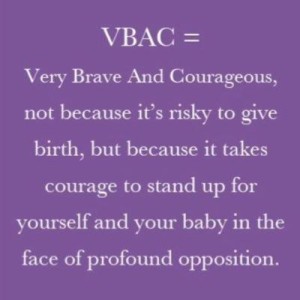
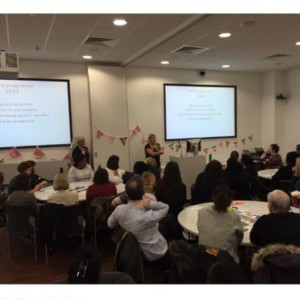
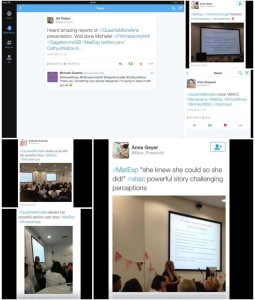
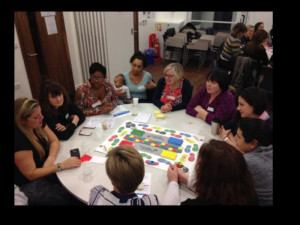
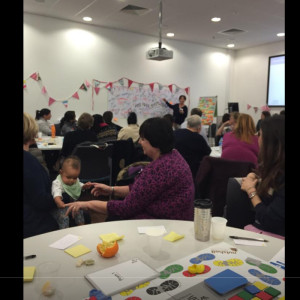
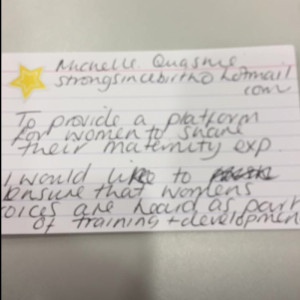
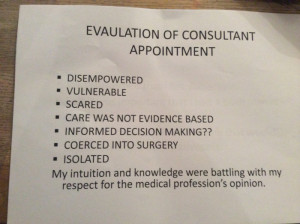
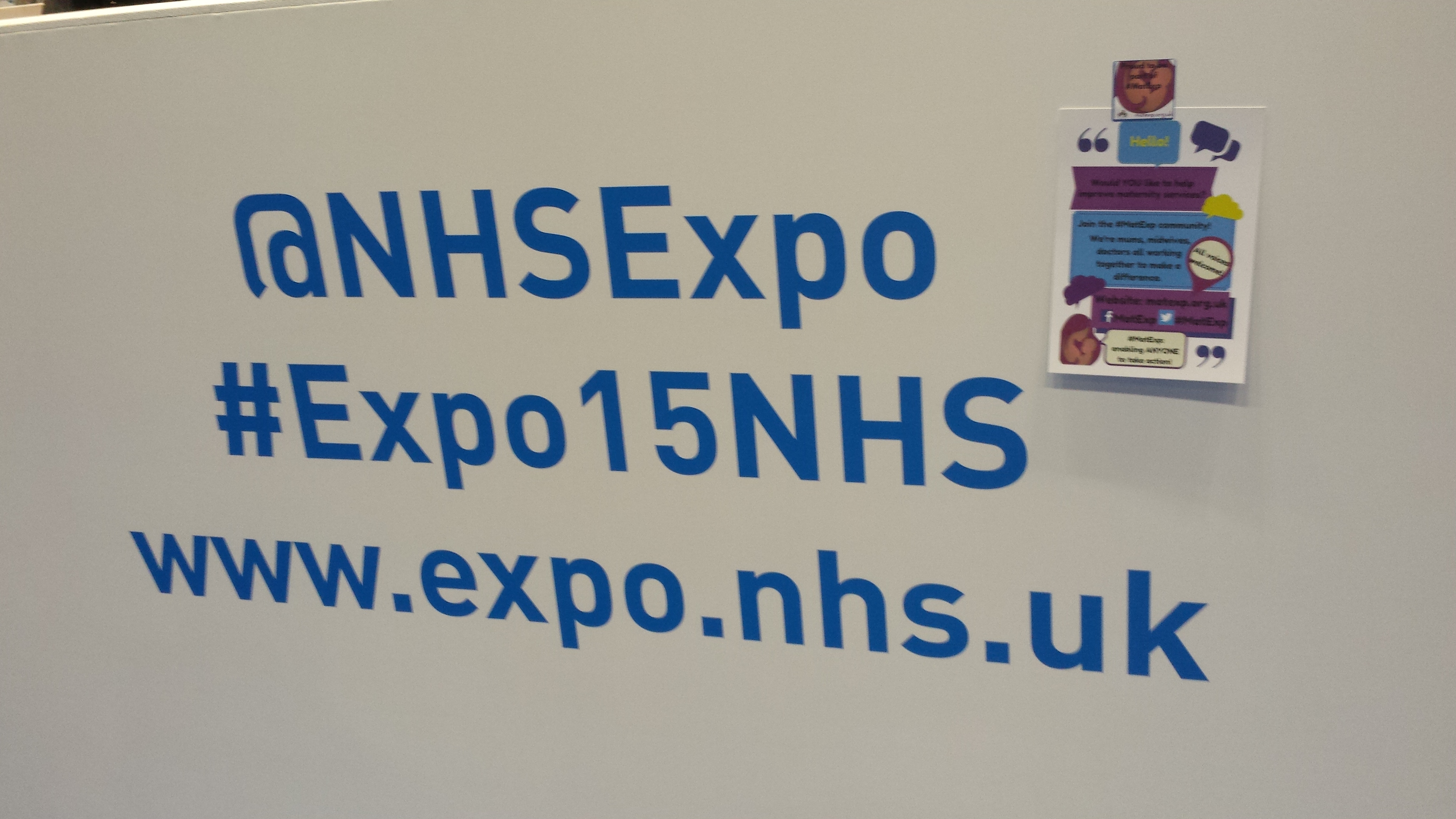
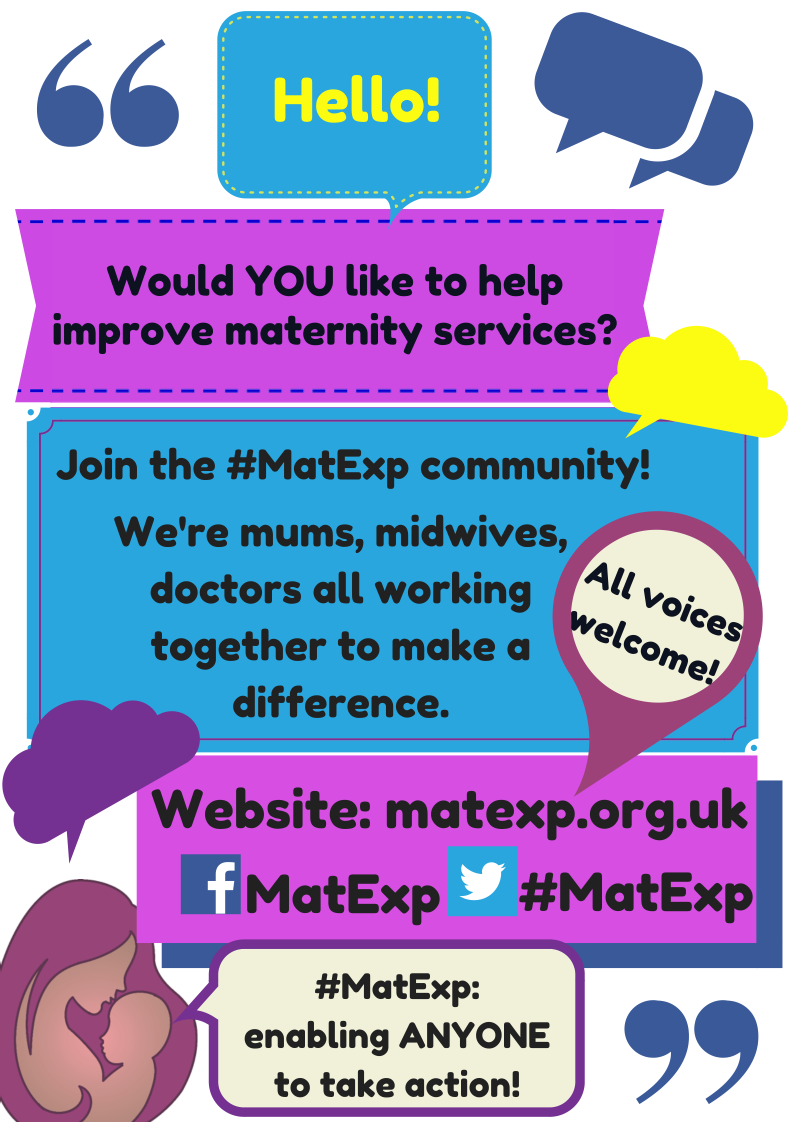
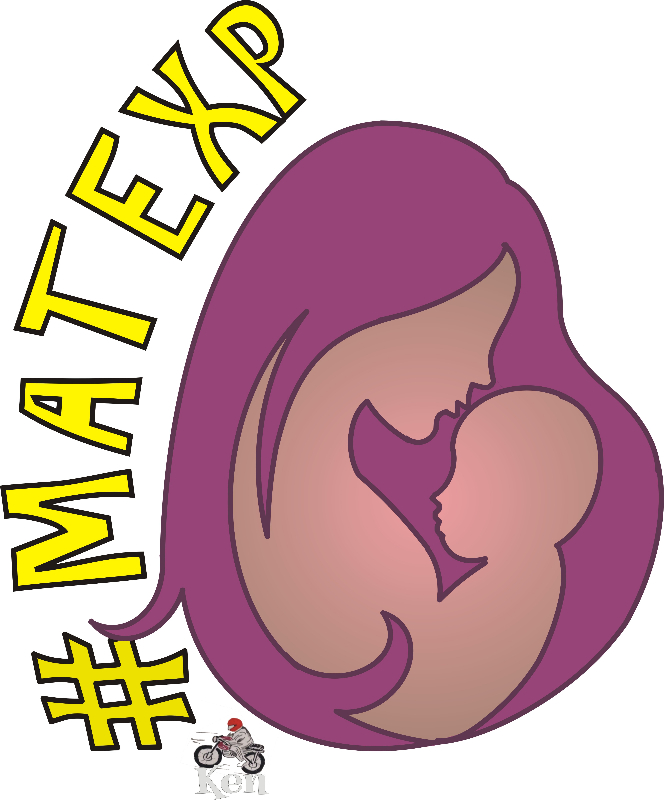


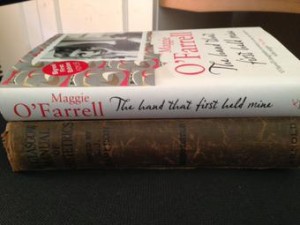

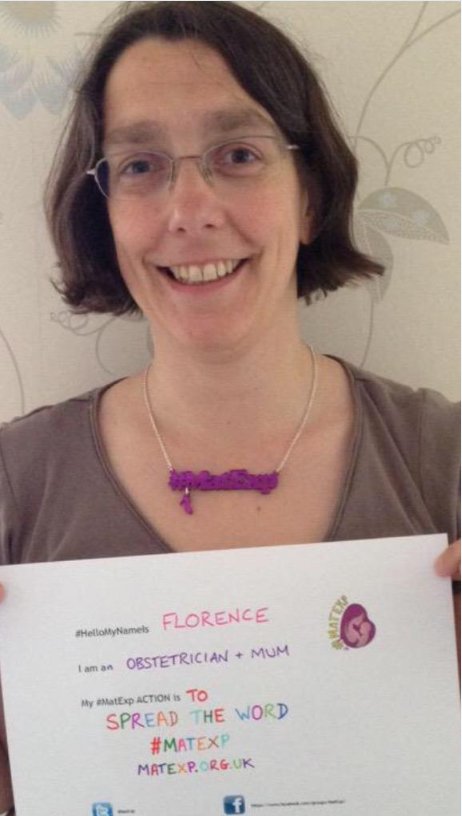
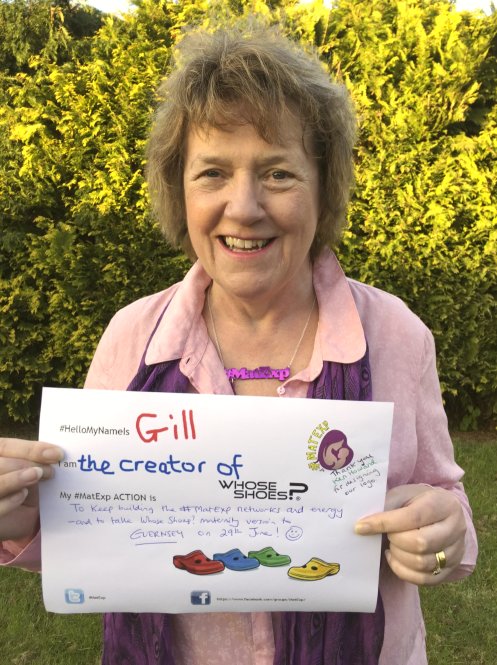
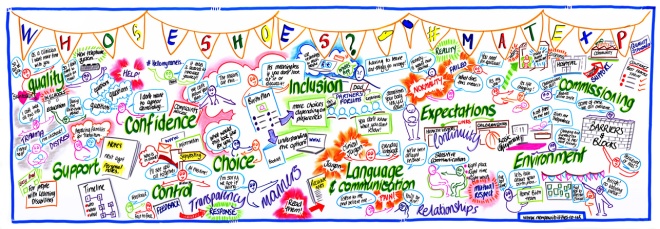 Graphic record from our #MatExp Whose Shoes? workshop, held at Kingston Hospital. New Possibilities are the graphic artists.[/caption]
Graphic record from our #MatExp Whose Shoes? workshop, held at Kingston Hospital. New Possibilities are the graphic artists.[/caption]








